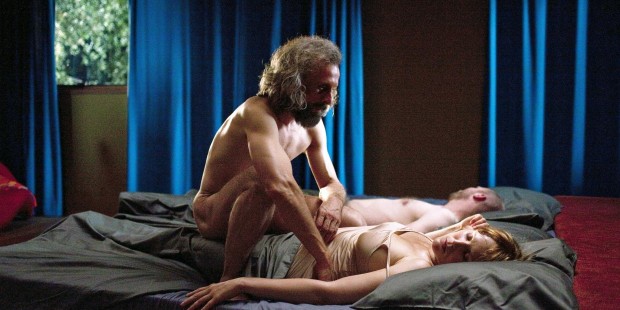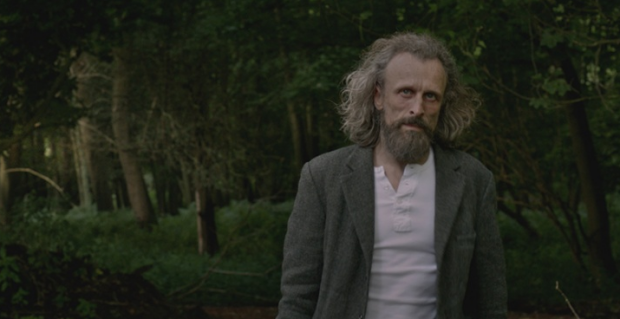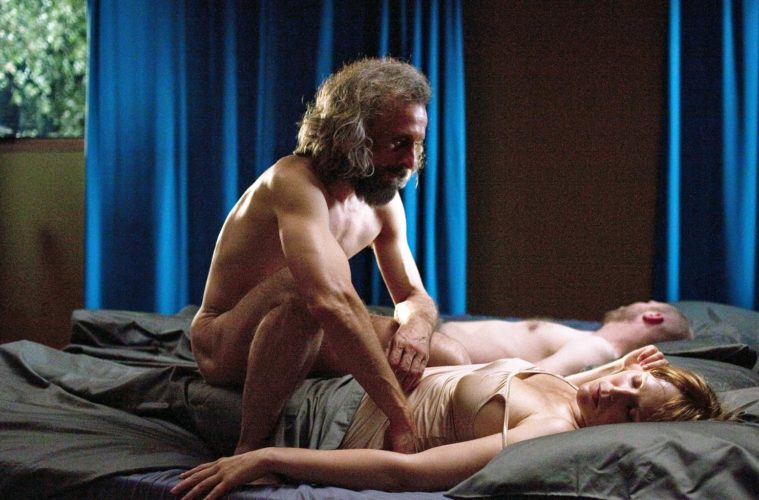
Following its Cannes debut last year, Alex van Warmerdam‘s twisted tale of a peculiar presence invading a bourgeois home, Borgman, is now finally in theatrical release. If one is looking for a film that doesn’t traverse the well-worn path this summer, it’s difficult to imagine an experience that will be more striking and darkly funny than this feature.
We got a chance to converse with the writer-director over e-mail (the ideal option, considering English is not his first language and he is currently deep into preparation for his next feature) to talk about Borgman. Among the topics discusses are his influences, how he’s not all that familiar with Michael Haneke, religion and more. It’s a brief, but enlightening chat, so check it out below, followed by the first gripping five minutes of the film.
What was your process in writing the script and coming up with the balance of drama and humor?
Actually I write a script while writing. I do not have a schedule before I start. From one thing comes another. There are several versions of course. Then I start working on a storyboard with the cameraman, visualise the story. That filters out a lot of dust, even unnecessary scenes. On the set I change things, delete dialogues. And finally in the editing room we throw out a lot.
I picked up on traces of Michael Haneke, but with a more humorous edge. Can you talk about your influences and if that was one?
Jean-Pierre Melville, Buñuel, Hitchcock and Laurel and Hardy. I only have seen two films of Haneke, Cache and Le Pianiste (The Piano Teacher). I only see the differences between us: his work has no humor and he clearly comments on society while my commentary on society is quite coincidental and casually. Haneke is a very serious director. I’m a player, a very serious player, but a player. I know that in Funny Games also malicious people invade the home of a family, but that seems, to me, a superficial similarity.
There’s many elements that intrigue, but more questions than answers, which I appreciated. Do think overexplanation is harmful in cinema?
Harmful, I don’t know, but it makes boring movies. People want to understand everything, they even get angry if there’s not a clear plot.

Crafting a dark fairytale of sorts like this, it seems like some of our worst fears are lurking the background. Did some of these images haunt you long before you came a director?
No, but when I was young I had nightmares of the Holy Virgin of ‘s-Hertogenbosch, a southern Catholic town in the Netherlands were I lived for five years when I was young. Her statue was in the cathedral. In fact it was only a big dress with jewels and a little friendly, primitive, wooden face on top of it. The face seemed burned. That makes her scary. She visited me many times at night, just staring at me.
You open with the quote “And they descended upon the earth to strengthen their ranks.” This hints at an angelic or demonic presence of Borgman and his group. Did religion play any part in crafting the film?
I was raised a Catholic, was an altar boy. That is an attractive source to draw from. In my opinion, Borgman could be a fallen angel. According the French distributor, Borgman is a real angel because he saves the children from their awful parents.
You premiered this film over a year ago at Cannes. Some directors say once they are finished with a project they don’t want to revisit it. Do you feel that way? What has it been like living with it for the last year?
Yes, I feel that way. Fortunately, I was, both before Cannes and after, working on a script that I’m going to shoot this summer.
What kind of reactions have been your favorite from Borgman? What do you hope people take away from the film?
I’m not a messenger. It is sufficient for me if they have a good time. Even better is if they are still working on it afterwards.
Borgman is now in limited release and expanding this weekend.

